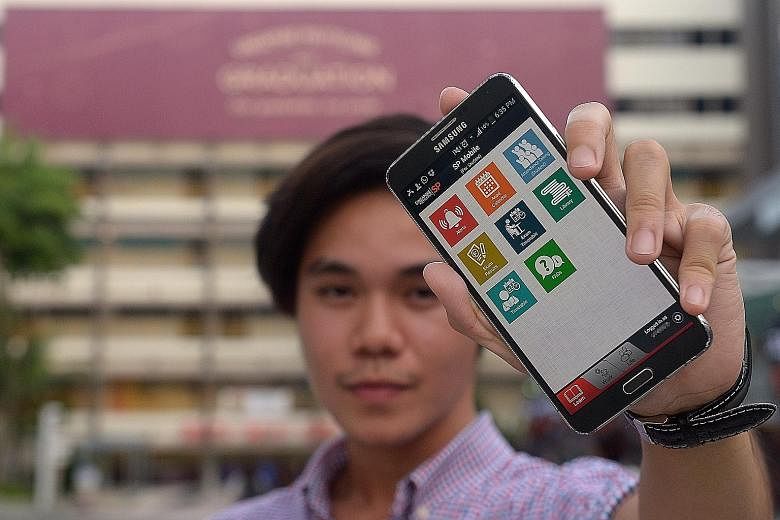An attendance system at Singapore Polytechnic (SP) has drawn mixed reactions, with an online petition asking for the system to be reviewed garnering about 700 signatures since last August.
To mark their attendance, students have to key a code that will be displayed in class into an app on their phones or on a website, using the school's Wi-Fi network. If they fail to do so in 15 minutes, they will be marked as absent. The system is compulsory for all of SP's more than 15,000 students.
The first of its kind at the five polys here, the system was started in April last year and replaced one where teachers took attendance manually before keying it in electronically.
But SP students have expressed concerns that the system might have glitches, and might not reflect their attendance even if they made it to classes within the stipulated time. Some also say that they were penalised when they forgot to mark their attendance even when they had turned up for class.
This can drag their grades down - those with attendance rates below the minimum 75 per cent are given pass or fail grades in their modules, equivalent to 0.5 or zero points out of the maximum four points.
"The Wi-Fi connection at school is horrible, so even if you manage to sign in only one minute after the 15-minute mark, you are marked as absent. Or sometimes the app is down," said marine engineering student Lorenzo Santos, 20.
A computer engineering student, who wanted to be known only as Nathan, said the new system was more stringent and he was almost penalised when his attendance rate fell below 75 per cent last August.
"They implemented it without any warning. Teachers used to be more flexible and would not penalise us for our attendance if they knew that we went for class, handed in assignments on time, and worked on our projects."
He said he was on track for an A but almost got a pass/fail grade for a module worth a third of his overall grade for the year. He later got the penalty waived as he had mitigating circumstances - he had to take care of an uncle who had a stroke, which made it difficult to attend classes.
"But a lot of my other friends still got penalised," said Nathan.
A recent graduate from the electrical and electronic engineering school, who declined to be named, said it was common to see people trying to beat the system.
"Out of 100 students in a lecture, sometimes only about 30 would be present even though 80 have already marked their attendance," said the student.
Responding to Straits Times queries, an SP spokesman said the school is aware that some students had expressed concerns. "We had taken steps to engage them, gather feedback and address the issues," said the spokesman, who added that the new system "helps to inculcate personal integrity and social responsibility among students".
Since the system was started last year, overall punctuality and attendance rates "have improved", said SP. But it declined to say what proportion of students did not meet the minimum attendance rates.
Meanwhile, at Nanyang Polytechnic, students tap their student cards on a card reader to sign their attendance, or do so manually.
Lecturers at the other three polytechnics take students' attendance manually and record it electronically. They said most students meet the minimum required attendance rate of 80 to 85 per cent.
But some SP students like the new system. Third-year chemical engineering student Chua Feng Qing, 18, said: "Lecturers don't have to call our names one by one to see who is present. We can also keep track of our attendance."
Mr Wayne Chiang, 21, who recently graduated from SP's business administration course, said: "It is a very clear-cut system with little room for error, and encourages us to manage our time well."


